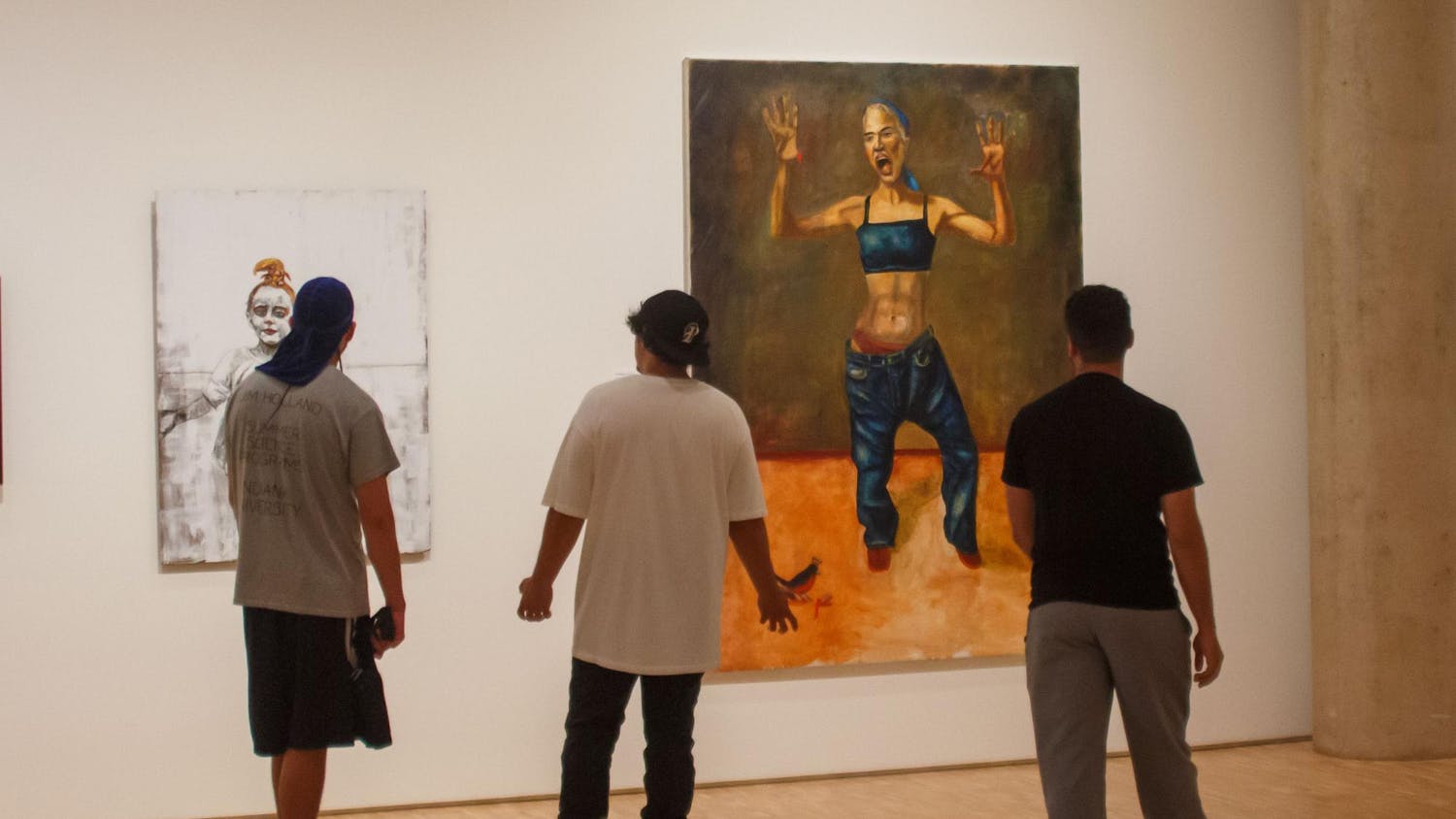When he was a child in Spain, Tomás Lozano’s grandmother sang him to sleep.
Now, the Bloomington resident performs the same ballads across the world.
Tuesday, Lozano performed his “Hispanic Ballads” recital to an eager crowd in Ford-Crawford Hall, emphasizing the importance of folklore traditions.
“I just thought it was songs,” Lozano said. “It was not until I was a teenager until I realized the songs my mom and grandma used to sing to me were ballads.”
Lozano opened the evening by playing the hurdy-gurdy, a Western European instrument played by cranking a spindle against strings to create a resonating drone.
“My favorite ballads were the mysterious ballads,” Lozano said. “They speak, and they say things without saying them.”
His opening ballad, “La Pérdida de Alhama,” captivated the room with an escalating buzz. Lozano allowing the shrill instrument to speak for itself.
“It has become a somewhat obsolete instrument,” said John McDowell, a folklore and ethnomusicology professor. “There have been revival activities with the hurdy-gurdy, but it certainly had its heyday a few hundred years ago.”
Lozano’s presentation specifically introduced the crowd to romance ballads, which are traditionally sung in Spanish, Portuguese or Catalan.
“Romances aren’t very well-known,” event organizer Julian Carillo said. “They have influenced many genres of popular music in Spain as well as Latin America and the southwest United States.
Romance ballads were meant to be played in various settings ranging from informal storytelling, to telling the news to depicting war tales.
Lozano played his favorite ballad, “Las Tres Mozuelas,” after the opening number. His mother and grandmother used to sing him the tale, which depicted a bachelor trying to win the hearts of three young girls.
“They were making fun of men,” he said with a smile.
According to the folktale, the three girls tricked the bachelor into buying them sweets. They promptly locked him out of their house.
Many in the crowded room who understood Spanish chuckled at the ballad’s lyrics. The rest of the crowd was serenaded with flamenco guitar, a sound without language barriers.
“It’s really interesting because a lot of people didn’t know about this tradition at all,” Lozano said. “But this tradition also existed in other countries like France and Germany.”
Joseph Clements, an IU professor of linguistics, regularly performs music with Lozano. He said playing medieval music keeps history alive.
“It’s like a language,” Clements said. “If speakers of a language die, you lose that whole cultural knowledge.”
It was in the year 2013, the super-information era, when students and professors sat down to hear music revived from the 15th century.
But Lozano left the audience with something to think about the art of ballads.
“It’s a little bit like storytelling,” Lozano said. “A little look into the past when everyone had time to sit down and listen. We need to have quiet time — not phone time, the only thing we listen to.”
Tomás Lozano serenades IU with 'Ballads'
Get stories like this in your inbox
Subscribe


